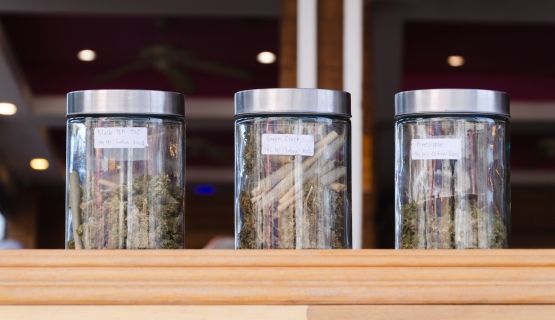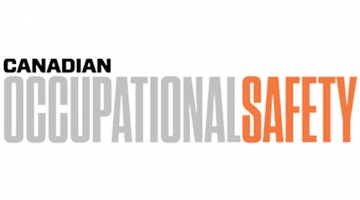Substance use and work
With the legalization of recreational cannabis in Canada, questions have been raised about patterns of cannabis use at work, the use of cannabis to treat work-related injuries, and the implications of such uses for work productivity, workplace health and safety and work disability management. IWH research examines these questions, as well as questions about the use and effectiveness of narcotics or opioids to treat pain, including pain associated with work injuries, and patterns of opioid-related harms among workers.
Featured

Research Highlights
Severe pain, not pressure to return to work or lack of accommodation offer, linked to opioid use post-injury
An IWH study found that among a group of injured workers in Ontario, those who experienced severe pain were more likely to use opioids than those who had no or only mild pain.
Published: February 12, 2025

Issue Briefing
Cannabis use by workers before and after legalization in Canada
Since 2018, when non-medical use of cannabis was legalized in Canada, a pair of Institute for Work & Health (IWH) studies was conducted to explore the implications of this change for workplaces. This briefing sums up their findings.
Published: December 5, 2024

IWH in the media
‘Unprecedented public health crisis’: Pioneering research studies links between workplaces, opioid harms
Dr. Nancy Carnide and Dr. Jeavana Sritharan were keynote presenters at the Opioids in the Workplace virtual event from OHS Canada and Talent Canada on Jan. 31 that attracted nearly 350 professionals. Their research, a collaborative effort between IWH and the Occupational Cancer Research Centre, offers a revealing look at the occupational patterns in opioid-related harms in Ontario and underscores the urgent need for intervention strategies tailored to the working population, writes Todd Humber.
Published: OHS Canada, February 2024
Journal article
Journal article
An observational study of pain severity, cannabis use, and benefit expenditures in work disability
Published: Canadian Journal of Public Health, January 2024

IWH in the media
Shining a light on opioid epidemic's link to the workplace
There is a new tool shedding light on opioid-related incidents among Ontario workers. The Opioids and Work Data Tool was developed through a collaboration between the Institute for Work & Health (IWH) and the Occupational Cancer Research Centre (OCRC), Shane Mercer reports.
Published: Canadian Occupational Safety, December 2023

IWH in the media
Injured workers are using cannabis to self-medicate, study shows
Most workers who use cannabis to treat work-related injuries and illnesses do so without medical guidance or authorization, a recent study out of Canada suggests. This article summarizes findings from the Institute's Ontario Life After Work Injury Study. It found 27.4 per cent of the workers reported using cannabis in the past year. Of that group, 14.1 per cent did so to ease symptoms stemming from a work-related condition, with the majority (67.3 per cent) not receiving guidance on therapeutic cannabis use from a health care provider.
Published: Safety + Health, October 2023

Research Highlights
Workers are using cannabis to treat work-related conditions, mostly without medical guidance
While cannabis is often used recreationally, there is growing interest in its use for therapeutic purposes, such as for pain, anxiety, depression and sleep problems. Some workers are using cannabis many months following the onset of a work-related condition, whether to treat their condition or for other reasons, mostly without medical guidance.
Published: October 2023

IWH in the media
Cannabis use during work raises workplace injury odds, research shows
A study by the Institute for Work & Health (IWH) has shed light on the association between cannabis use and work injury risk. As reported by Ada Tabanao, by distinguishing between on-the-job cannabis consumption and off-duty use, researchers found a significant difference in injury risks.
Published: Benefits and Pensions Monitor, August 2023
News release
News release
Only cannabis use at or before work linked with higher work injury risks
Published: July 2023

IWH in the media
Analysis: One in seven use cannabis to recover from work-related injuries
An estimated one in seven Canadians report using cannabis products to recuperate from work-related physical injuries, according to data published in the journal BMJ Open. Researchers at the Institute for Work & Health surveyed nearly 1,200 Canadians who had received workers’ compensation for either a work-related injury or illness. Fourteen percent of respondents said that they had used cannabis explicitly to recuperate from a workplace injury.
Published: NORML, July 2023

IWH in the media
Workers in construction, mining most impacted by opioid-related harm: research
Previously injured workers in sectors including construction, mining and forestry are more likely to end up in the emergency room or to be hospitalized due to opioid-related harm than workers in other sectors in Ontario. Lindsay Kelly reports on findings shared by the Institute for Work & Health and the Occupational Cancer Research Centre at a webinar hosted by EPID at Work, a occupational health research institute at Lakehead University in Thunder Bay.
Published: NWOnewswatch, July 2023
Journal article
Journal article
Cannabis use among workers with work-related injuries and illnesses: results from a cross-sectional study of workers' compensation claimants in Ontario, Canada
Published: BMJ Open, July 2023